Diet
What Causes Disease? Something New or Something Old?
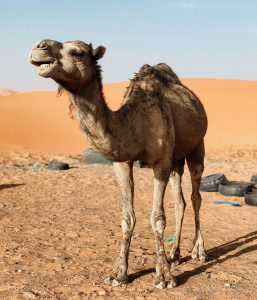
A common question from health care providers to patients during initial intakes around the inception of their chief complaint is: “Did anything new happen or significantly change in your life just before this started?”
If we are looking at an orthopedic issue this might be in suggestion to some physical trauma or accident. If the issue is more psychological, we’re inquiring clearly more around emotional trauma or incident. Either way, no matter the medical paradigm it is always helpful to know what, if anything, was the final straw, and/or only straw, to induce a present pathology.
Where medicine gets tricky is in approximately half of the times when the patient responds: “Nothing… nothing changed.” Nothing new or bad happened.
In this case it is logical to look at genetic tendencies finally rearing latent heads, but I am more inclined to examine patient habits and lifestyles finally catching up to them. Everyone knows that a few cigarettes, or even a few years of cigarettes, do not cause chronic illness, so why should a short or even medium interim of any harmful pattern under the umbrella of self-care?
How many years does it take for a lack of exercise to cause disease? How many years does it take for nightly desserts, social alcohol use, or haphazard use of pharmaceuticals to?
“The last straw(s)” is an etiology which poses a greater challenge to patients’ self-awareness, curiosity, and/or open-mindedness. Being confronted with what we might have been doing wrong for years, if not decades—where our responsibility lies—poses a threat to our ego, our belief systems, as well as our simple energy in its implicit requisite of critical thought, experimentation, and will power to examine what we could/should change. Nevertheless, scientific logic would dictate this to be at least one irrefutable contributing factor to disease.
When “nothing changed” just prior to onset of symptoms, what percentage of causality can we intelligently assign to genetics alone? Thirty percent? Sixty? Maybe ninety on occasion? I am skeptical it is very often 100%, lest I would personally be relegated to medications for gout disease, eczema, and an anxiety disorder.
I recommend to all patients, myself included, to be open, to the idea that although we probably haven’t been wrong about everything, we are just as likely wrong about some of the things we do, especially whilst in the context of seeking help.
Please don’t get me wrong: As much of a pet peeve it is for me to work with patients who take no responsibility for their conditions and/or wield a particularly narrow-minded arrogance around the infallibility of their choices, it is equally unacceptable when health care providers put the entire onus on the patient. The healing process, in my opinion, is not only a marathon-like process of scientific experimentation, but a team process, that usually requires approximately half of contribution from both parties. I’ve heard many colleagues criticize patients’ desire for us to “fix them.” Obviously, I agree, people must take responsibility for their health. At the same time, most chronic conditions need the outside support and help from professionals as well.
Chinese Medicine Breakfast Ideas
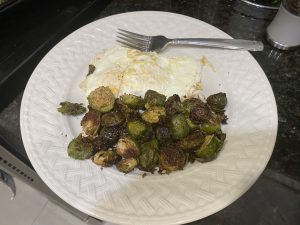
I’m not sure what the time or place was that berthed the maxim, Breakfast is the most important meal, but they were obviously more attuned with human biology than our own. In Chinese Medicine’s circadian clock, 7am-9am is considered the “time of the stomach.” The prior, 5-7am, corresponds to the large intestine, which makes it the ideal and most common time for bowel movements; before that, 3-5am, to the lungs, which is why many people with chronic or acute coughs are disrupted by them in the middle of the night.
While this may all sound like esoteric medical theory, it aligns perfectly with modern biomedical understanding: The reason 7-9am is the time of the stomach is because it is when metabolism is strongest—when our bodies are most sensitive to the insulin hormone, whose job it is to break down glucose from food and transform it into nutrients.
We say “stomach qi.” They say insulin secretion. Same thing. Of course, when people lack a morning appetite or experience a weaker metabolism in the morning we consider this to be pathological, diagnostically informative. Since for most of us 8am is at least 12 hours since our last meal this should not sound far-fetched. Chinese Medicine believes when we do not adequately exercise our microbiome in the morning we weaken it—a similar use it or lose it view as to the muscles, tendons, and ligaments that are ultimately nourished by the gut as well.
Intermittent fasting can have many health benefits when done responsibly, but if one intends to do it intelligently, without potentially robbing Peter to pay Paul in the long term, you would skip or have an early dinner, instead of neglecting science by skipping breakfast. I understand the potential social repercussions of this, for which I recommend compromise: Have dinner or later dinners on social nights, while on quiet nights, if it works for you keep to your fasting window.
For those who claim to not have time for breakfast, I am skeptical. As most of you know, for the past year I’ve been still running my own practice while co-parenting a 14-month old. Recently, as she has rapidly grown in physical mobility and emotional attachment, I’ve been forced to cook with one hand and arm in the morning. I’ve learned to crack and cook eggs all with one (messy) hand, and inadvertently multi-tasked into giving my left bicep a tremendous daily workout. Even on my earlier days in the office we never skip breakfast.
One of my favorite and easiest recipes are as shown above, eggs over easy with ANY roasted vegetables. As long as you can find the five minutes to wash and chop the veggies, you can then throw them on the pan, add salt, pepper, garlic powder, and flaxseed, and cook for 20 minutes, during which time you can get ready for the day (or sit cross-legged on the floor and read children’s books). When they are a few minutes from ready return to the kitchen for your one-minute, one-handed eggs. Once plated I like to add a good quality olive-oil atop the vegetables, a) to give them moisture, b) for olive oil’s health benefits. Viola! Breakfast!
In Chinese Medicine eggs are considered one of the healthiest foods in the world. They even appear in a couple of our herbal formulas that are designed to clear pathological heat from the body by nourishing our healthy fluids and blood. Between my wife, daughter, and I, we consume 3 dozen/week, and I can’t imagine where we’d be if we didn’t. Bon Appetit!
For a FREE INITIAL CONSULTATION on how Chinese Medicine might be able to help you, CLICK HERE.
Shower Clogs and Chinese Medicine
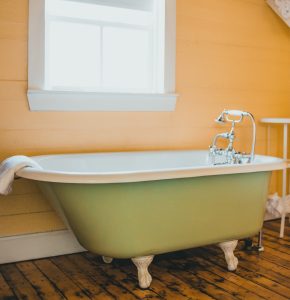
One of the recurrent flaws in our Jersey City apartment of the past few years has been the plumbing. Within months after moving here we had an inexplicable leak from the kitchen sink that forced management to have to tear up and replace the living room flooring. Of course, my neurosis coupled with faith in ongoing communication from the subjective realm diagnosed this as a sure sign from the universe (and my own spirit guides) that leaving New York City was the wrong decision. My wife on the other hand diagnosed it as a plumbing crisis.
More chronic at home has been our need to regularly flush out the shower drains, and each time we do so we’re sure to use not just hot water, but a pot of boiling water to chase the Liquid Plumr or whichever product my wife deems most ideal to unstick the grime and/or hairs that cause the clogs. It reminded me of one of the most important principles in Chinese medicine, the diet, and lifestyle we encourage of human beings.
Grime or accumulation in pipes is no different in theory than “dampness,” dysbiosis, or plaques in human vessels, arteries, and pathways. Call it what you will—any of the aforementioned, otherwise inflammation or fluid retention, ultimately all paradigms of medicine can consistently observe and cite such blockages as the underlying etiologies to most diseases.
This is why Eastern medicine discourages our consumption of anything and everything cold. Whether cold drinks, cold foods, such as salads, yogurts, or smoothies, or using ice on injuries, cold constricts and solidifies accumulations instead of dissolving them, thereby making such substances counterintuitive to our perpetual intention to reduce inflammation.
Cold foods are often yummy and convenient, which makes them that much more appealing in our fast-paced society, although convenient should always be a red flag when it comes to caring for the planet and ourselves. Microwaves are convenient, as are plastic bags and take-out containers, as well as gasoline cars, all of which are obviously and equally basic and destructive.
Western medicine often alleges there is “no known cause of arthritis,” which really just means they do not know what causes it. In Eastern medicines we know better. This doesn’t necessarily mean our treatment towards full resolution is simple, but its cause is. The human body is made mostly of fluids that have to constantly circulate, often through relatively microscopic spaces surrounding joints and ligaments. This circulation is created by our “qi,” or overall cellular energy, which obviously wanes with age. Exercise can help, as can a good diet, but all of us over the age of 30 are gradually losing energy, which means our fluid circulation is slowing, which leaves us vulnerable to cold clogs, constriction, and inflammation.
As we seem to instantaneously traverse from summer into a rather chilly fall this is an important concept to keep in mind. While anti-inflammatory diets and nutritious foods can be great, many times our bodies can benefit by just pouring hot water into it every day. Whether in the form of herbal teas, pu-erh tea, barley and ginger tea (message me for this recipe) green tea (only for those of us with heat patterns), soups, and/or bone broths, or shiitake mushroom broth for my vegan friends, a daily ritual of these edible, nourishing versions of Liquid Plumr can have immeasurable preventive benefits if consumed consistently over long periods of time.
To learn more please schedule a FREE INITIAL CONSULTATION!
What Are Your Naturally Occurring Anti-Depressants?
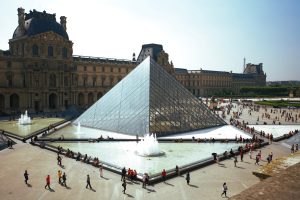
Though many have it worse than others, my opinion is that states of depression are an inescapably subjective experience of our human condition, for which it is important to mitigate with naturally occurring “anti-depressants.” While Eastern and Western meds are often able to help us through difficult times, our long-term prognosis is bound to deteriorate if and when we concede full autonomy, and lose track of which little things make us (relatively) happy.
I don’t know any intelligent person who’s never experienced any degree of depression. This doesn’t mean I’m calling you dumb if you think you haven’t. In fact, there’s a good chance most of us could learn a great deal from you. But I think there is a degree of self-awareness and critical thought that lends itself to an organic vulnerability to a particular darkness that is an objective part of life, whether we focus on it or not.
I cannot make any specific recommendations, as much like Chinese Medicine, self-care is holistic—there is no one-size-fits-all. However, I thought I’d share some of the things that help me personally, in hopes of either inspiring or simply connecting with yours.
- Music: I think I came to gradually realize how well music mitigates my own sadness or frustration in correlation with becoming gradually more domesticated and doing more cooking and cleaning than I ever had before. I am not one of those people that is able to think of doing dishes as “a meditation.” It’s not relaxing for me in any way. And in spite of my food snobbery and nutritional counseling, if given the option I’d gladly prefer a personal chef. I do not love cooking. But both of these tasks fluctuate between tolerable and even enjoyable when done while listening to old school hip hop.
- Laughter: Duh, I know… but specifically the kind of laughter I get while talking to the funniest person I ever met, my brother. I recall struggling to get through last winter, taking my newborn for brisk walks around Jersey City when she refused to sleep, and a lot of the emotional duress of it being alleviated by talking the entire time to my bro.
- Running: All exercise of course, but from a Chinese Medical perspective, nothing “courses the liver qi” (modulates cortisol levels), better than just breaking out into a run. Interestingly, because of the potential challenge this places on the knees and heart if done to extreme, marathon-like excess, it is not necessarily something we condone long-term, but if we are young enough, strong enough, and stressed enough, it can be the perfect “herbal formula” for racing through difficult times.
- Caffeine: When I was first learning about holistic medicine I thought caffeine was something that I had to give up in order to heal, but through time and education I thankfully learned otherwise. For most people more than two cups per day is excessively drying and stimulating, but two cups or less can function as a helpful diuretic, purging dysbiosis not only from the gut, but the mind as well—hence the neurological boost we get. Although I try to be mindful of my quantity of caffeine, and stop by 11am, delicious hipster coffee has undoubtedly helped me through hard times.
- New York City: Throughout my life, whether flying in from out of town, looking down upon our unique skyline or just emerging from the PATH train station onto 23rd and 6th on a mundane Wednesday, every time I arrive in NYC a wave of contentment washes over me that I’ve only otherwise experienced on my second time flying into Paris. Regardless of my Taoist beliefs and environmental consciousness, I suppose in my heart and soul I am a city boy, which is important to be aware of. Know what kind of atmosphere makes you happy—be it nature in the middle of nowhere or bathed in the noisy chaos of manmade filth and humanity—and go there frequently.
I respectfully understand that none of these are cure-alls, for when we are in crisis, which is common and normal, we generally need help from other sources, whether personal, medical, or both. These are merely friendly reminders for that which are at all of our fingertips at all times, Paris notwithstanding.
To learn more about how acupuncture treats various mood disorders, please don’t hesitate to CONTACT US.
Father’s Day, from a Chinese Medical Perspective
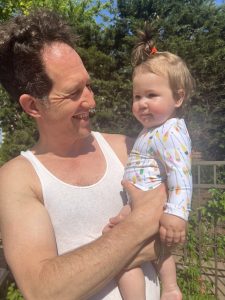
In celebration of my first Father’s Day as a father I couldn’t help but reflect on when and why I first decided that I wanted to have children. As an exorbitantly self-absorbed, 20-year-old, male urbanite with artistic passions and lofty career goals, I never thought about having kids. I don’t know that I defiantly didn’t want a baby—nor did I consciously want one. It wasn’t until approximately a decade later, upon my initial explorations into Buddhism and spiritual literature that I decided procreation mattered to me.
Parenthood, in my opinion, represented an important experience towards self-actualization. Like most young adults I developed aspirations to give to my future child an even richer and more complete experience than was given to me, which I’m confident my own parents succeeded in providing relative to their upbringings. I think most of my generation were brought up with greater affection and career opportunities than the previous generation. My hope is to bring my daughter up with a greater cultural experience and spiritual awareness, and of course a more conscious diet.
I entered parenthood with these naïve notions, images of sitting lotus posture across from my child, our eyes locked as I imparted fortune cookie wisdoms to her, until we spontaneously merge into an exploding ball of white light and love. Instead, my experience is closer to that of an unpaid employee at a 2-star restaurant, who frantically wears the hats of chef, dishwasher, busboy, and maintenance man, while shouting back and forth at my “co-worker” anything but pieces of fortune cookie wisdoms. I am aware of course, as I sit here typing this, that these are the “spiritual experiences” in action that I sought. Though it is admittedly beyond challenging in those moments to recognize them as such, or to understand what it means to be a father.
With all due respect to the modern mutability of gender roles, identifications, and definitions, when I think of a father I think of my own dad, the masculine energy, or “yang qi” of the body. In Chinese Medicine our first line of immunological defense are the “tai yang” (or “greater yang”) channels. It is the job of the yang qi to protect and warm us, also to motivate and excite us, and direct us upwards… which may be why my daughter prefers that I lift her up towards the ceiling to kick her legs and laugh, but insists with no equivocation that she always be put down to sleep by the calmer, more nourishing, “yin energy” of Mom.
While my own father was a paternal treasure, an awesome dad five times over, where I saw his “yang qi” finally falter in his later years was in the all too common indulgences of “pathological yin” substances: Sugar, alcohol, cold foods and drinks, a sedentary and relatively anti-social lifestyle over time will put out our yang fire, and too often in our society what we see in older dads are soft, curvy, and fleshier physiques concurrent with quiet, more withdrawn demeanors. While some degree of grounded calm is very organic in our later years, my opinion and observation is that there can be a healthier, more engaged manifestation of it.
Without much apparent choice in the matter, my intention is to continue grinding away in the 2-star restaurant, hopefully with perpetually greater mindfulness that every sleepless night, every screaming cry, and scrubbing session on my hands and knees of the cooked produce peppered around our living room floor is the spiritual experience. With hopes that one day through my own appropriate discipline and self-care, I’ll possess adequate yang qi by which to sit lotus across from Peyton, look into her eyes, and impart everything I know, and don’t know.
Happy Father’s Day!


